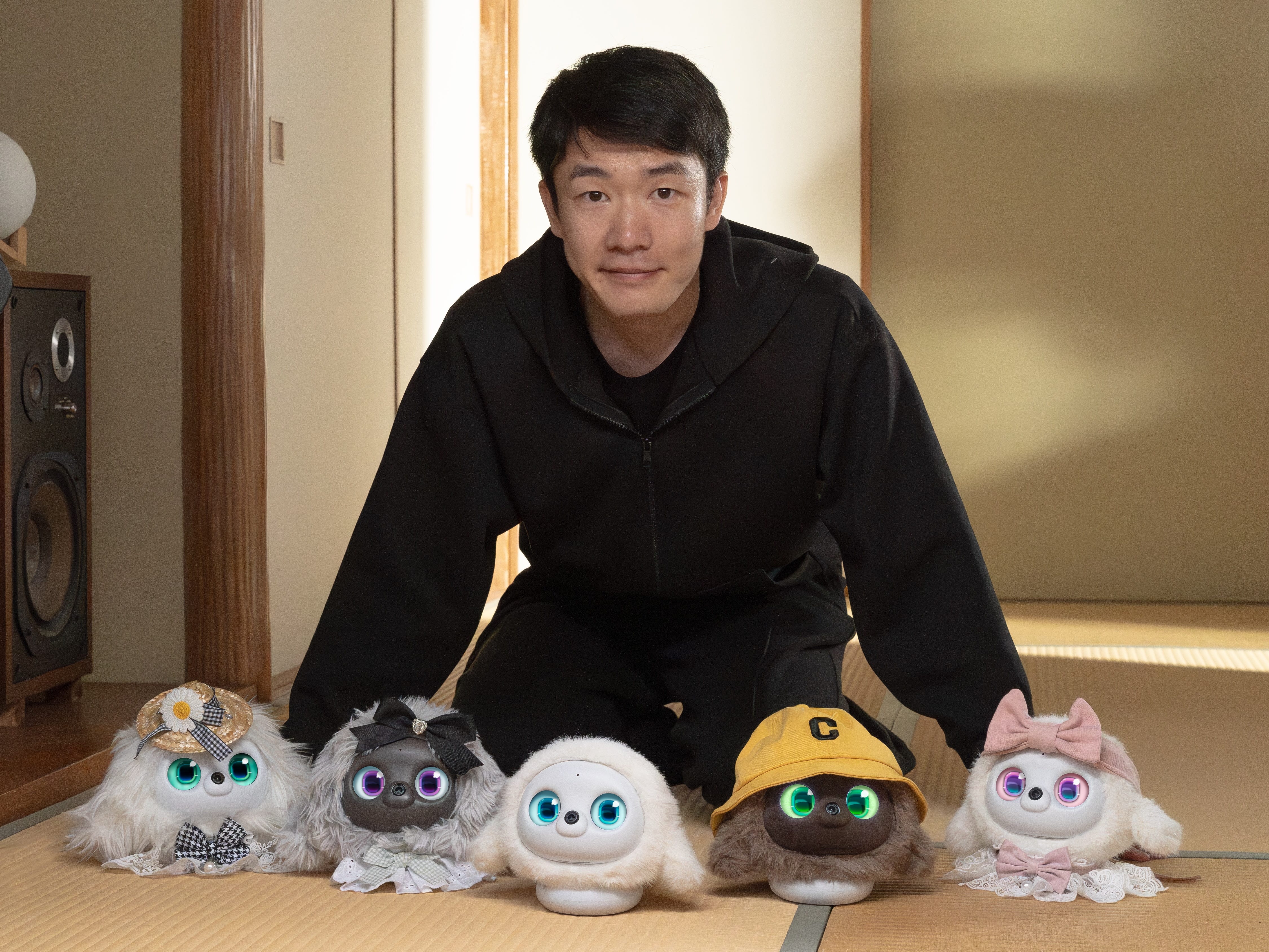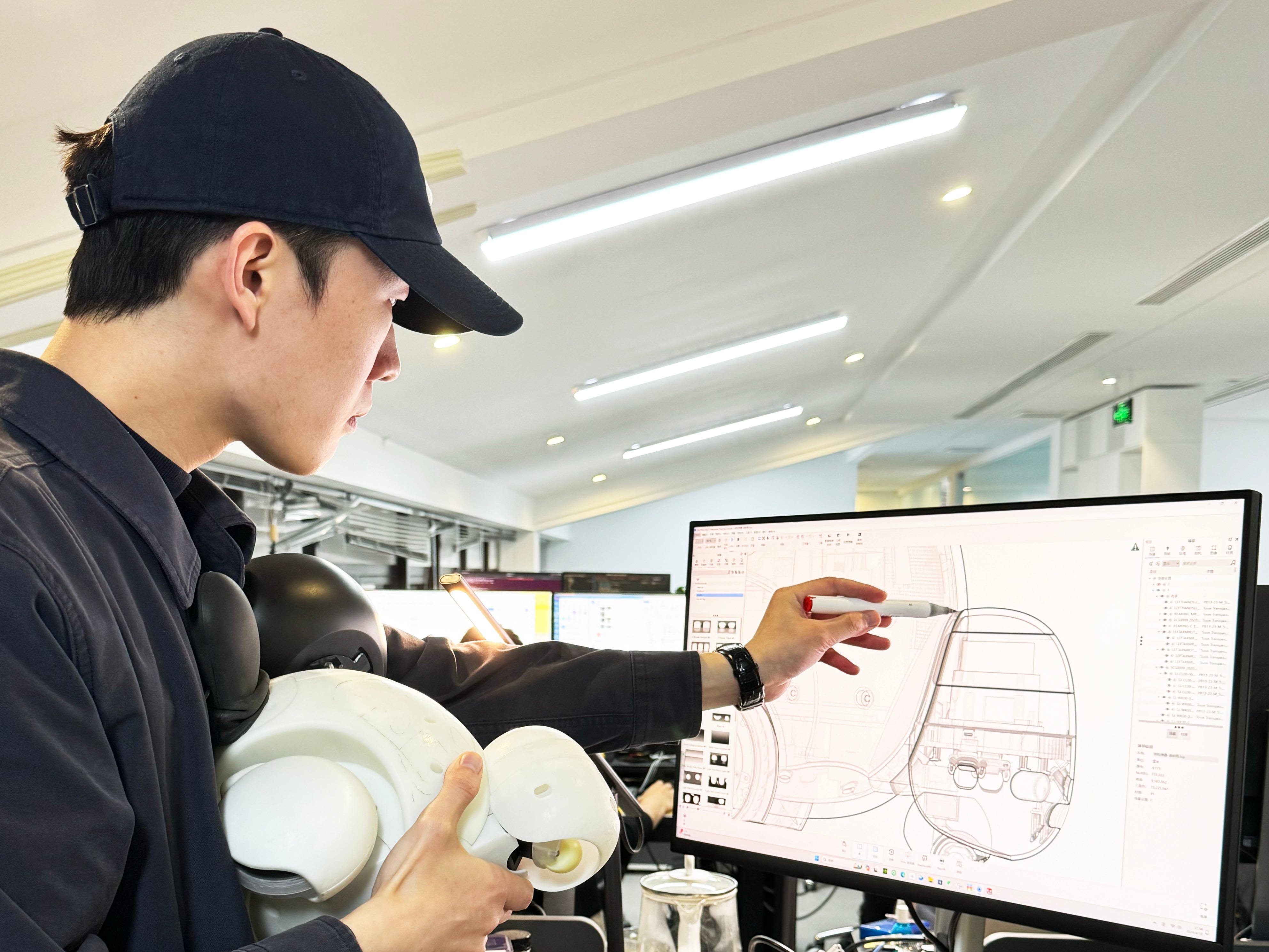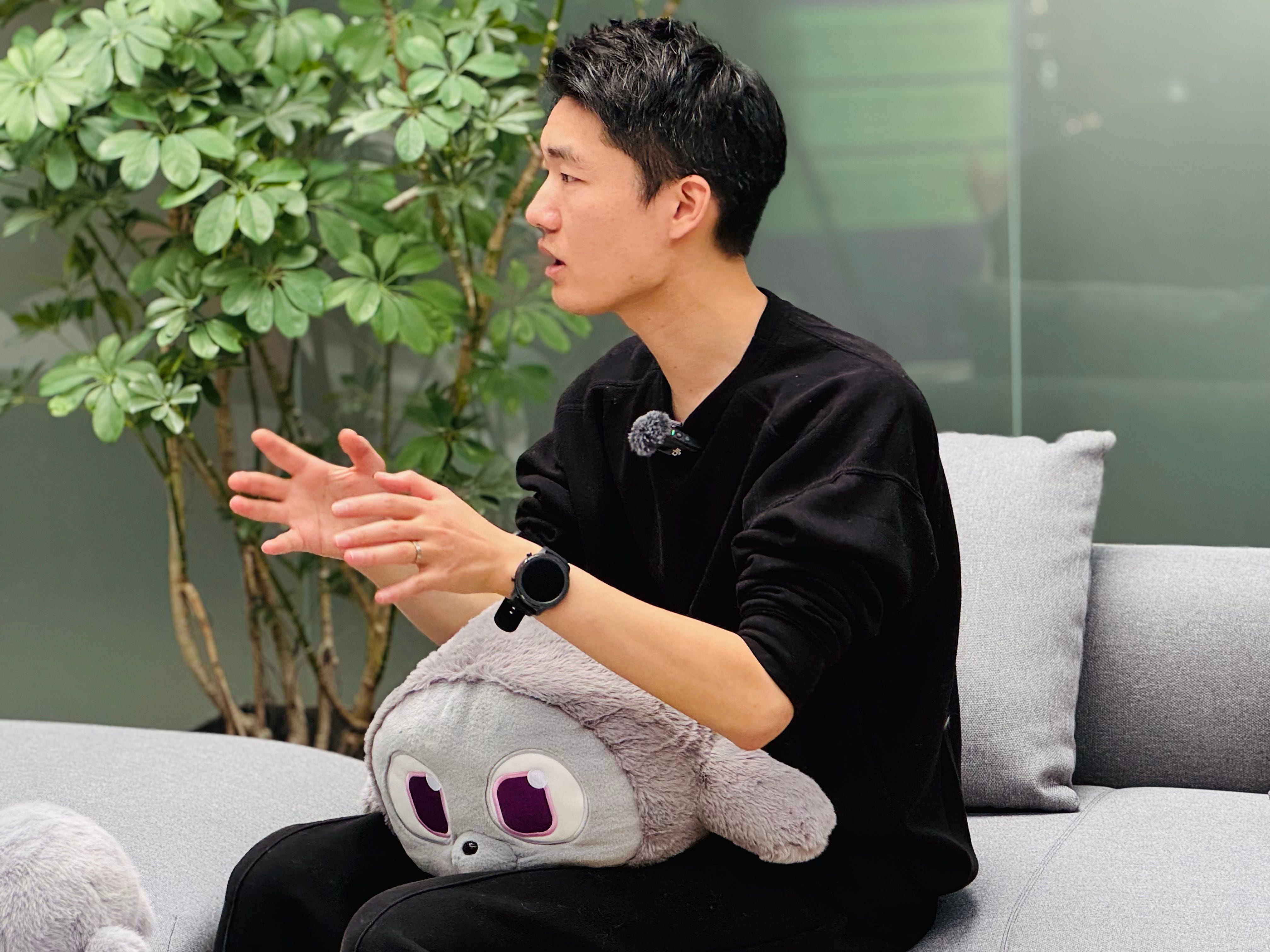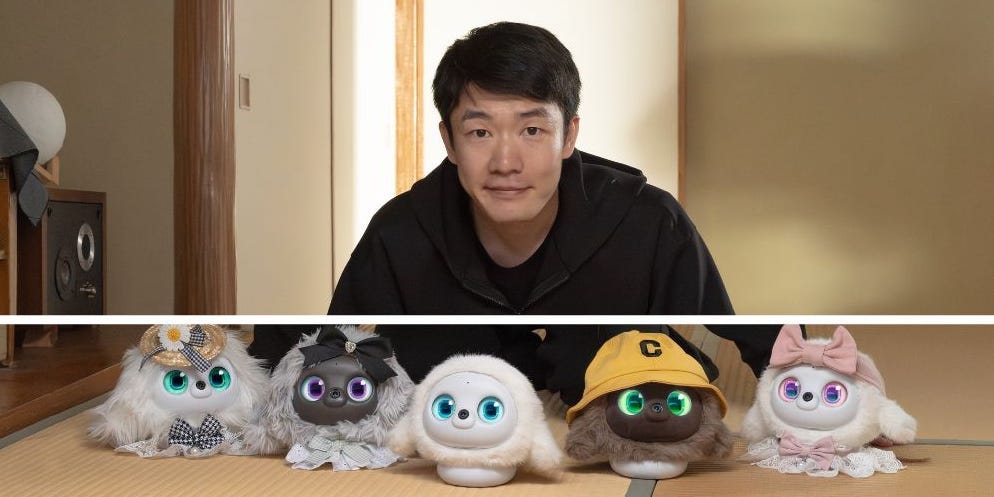
Provided by He Jiabin
- He Jiabin, now 35, built smart backpacks in college — a project that launched him into China’s Big Tech scene.
- He worked at Microsoft Research Asia, Baidu, and ByteDance before deciding to leave Big Tech behind.
- Now, he’s the CEO of a robotics startup called Ropet, building AI-powered robotic pets.
This as-told-to essay is based on a conversation with He Jiabin, 35, the CEO of Ropeta, a Beijing-based robotics startup. His words have been translated and edited for length and clarity.
When it comes to decisions, I follow my instincts.
I grew up in Zhuzhou, Hunan, in central China. At 17, I left home to study product design at Beijing Institute of Fashion Technology, where I started researching wearable hardware. In my third year, I interned at Microsoft Research Asia, where I helped scientists turn lab prototypes into products that people could actually use.One project explored whether a watch screen could be touch-sensitive — before the Apple Watch even existed. That inspired my graduation project: a line of smart backpacks. One tracked location for parents, another recorded video for cyclists, and a third powered a phone for seven days. The project earned national TV coverage.
One of my professors encouraged me to pursue academia, saying China needed more people developing a homegrown design discipline, rather than continuing to follow practices imported from foreign institutions.
But I was curious about how large companies scale and how their management methods drive tens of thousands of people to innovate. I wanted to approach things from a market perspective.

Provided by He Jiabin
From Big Tech to startup builder
After graduation, I joined Baidu’s learning lab as an interface designer, working on smart bicycles, self-driving cars, and smart glasses before moving to its research institute. While autonomous driving succeeded, other promising projects weren’t pursued. I wanted to create products people could actually use.
So I joined the founding team of Ling Technology, which built Luka — an owl-shaped robot that reads to kids. We sold 4 to 5 million units. I was promoted to partner, overseeing product, design, production, and marketing. I stayed for five years, until intense competition drove down prices, and China’s “Double Reduction” policy — which curbed after-school tutoring — cut investor interest in education tech.
We couldn’t raise more funds, so I left.
In 2021, I joined Bytedance, as the leader of its industrial design department. I believed that among all the major tech companies, Bytedance was the most profitable, most aggressively innovative, and the one with the greatest potential for growth.
I worked on the leading brand of VR headsets in China. At our peak, the team had more than 2,000 people. But with such a big team, I didn’t always feel involved or impactful.
At the same time, investors were looking for potential entrepreneurs.
Having spent a decade in human-computer interaction, I saw how “weak AI” products often disappointed users — and how the new AI wave could change that.
At a big company, the business is often quite vertical, leaving little freedom to explore.

Provided by He Jiabin
I wanted to build something from scratch.
I’m now the cofounder and CEO of Ropet, where I lead business management and product direction. I felt that making companion robots was a great direction. They require emotional subtleties in product development, not just a tech-oriented approach.
The company was founded in 2022 by Zhou Yushu, and I joined a year and a half later.
We secured $3 million in our first funding round, 10 million yuan in the second, and most recently, in August, we raised 30 million yuan, or about $4.2 million.
I’ve realized I’m not suited for big companies. I prefer working in a small team that innovates quickly. In a startup, I get direct market feedback. My goal is to sell 20,000 units by the end of the year.
We want to become the leading brand for cute pet robots globally.
Lessons learned along the way
Microsoft taught me how foreign companies operate. At Baidu, programmers led innovation, more than designers. Bytedance paid well but set tough goals, so people were very competitive.
At a big company, I could clock out at the end of the day. Now, there’s no room to hide. No one else is there to solve problems. I think about the product and company issues 24/7. When I’m creating value, I don’t see it as “work.”
Do you have a story about starting a company in China that you want to share? Get in touch with the editor: [email protected].
Read the original article on Business Insider
The post I worked at Baidu, ByteDance, and Microsoft. Now, I’ve raised millions to build robotic pets. appeared first on Business Insider.




